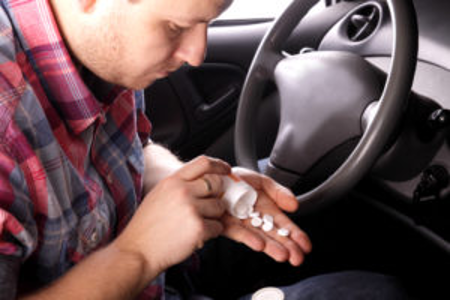Prescription drugs aren’t the first thing that comes to my mind when one hears that someone was arrested for driving while intoxicated. Alcohol is, of course, the basic prevalent assumption. After that, one typically thinks of an illegal drug like cocaine or marijuana as being the cause of intoxication.
However, prescription drugs are becoming a more common link to accidents caused by drugged driving. However, in many cases, drugged driving isn’t as easy to detect as alcohol-influenced driving. In becoming better equipped to deal with the problem, perhaps the first thing to understand is that drug-impaired driving is more complex than alcohol-impaired driving.
There is abundant data available about drunk driving but only limited data available about drugged driving. The impairment caused by alcohol is, of course, well-documented while the impairment caused by any particular drug varies and underlying research thereon may be scarce. The data on the presence of drugs in drivers involved in accidents is incomplete in most states, as well as inconsistent from state to state, even varying from jurisdiction to jurisdiction within states.
Drunk driving involves one drug, alcohol, while drugged driving involves literally hundreds of substances. There are 430 specific drugs or metabolites in the national highway safety fatality database. Thus, there are hundreds of different drugs that may potentially impair drivers.
For many of these 430 drugs, the relationship between a drug’s presence in the body, its effect on driving, and its effects on the risk of causing an accident are complicated and much less understood. To further complicate matters, these factors vary significantly from motorist to motorist.
It’s also more difficult for the members of law enforcement to detect drug impairment at the scene of an accident than alcohol impairment. Often, it’s more difficult to prosecute and convict a motorist for driving under the influence of drugs (DUID) than for alcohol-impaired driving (DUI). Laws regarding driving while under the influence of drugs also vary across state jurisdictions.
Also, some drugs that may impair driving are illegal to use while others are legal to use under specific conditions and are easily available as over-the-counter medications. Any driver of a motor vehicle may be pulled over and charged with DUI for simply taking over the counter medications including antidepressants, pain relievers, and anti-anxiety drugs. Even prescription medications taken for colds and allergies may impair driving in the same manner that illegal drugs like alcohol and marijuana do.

